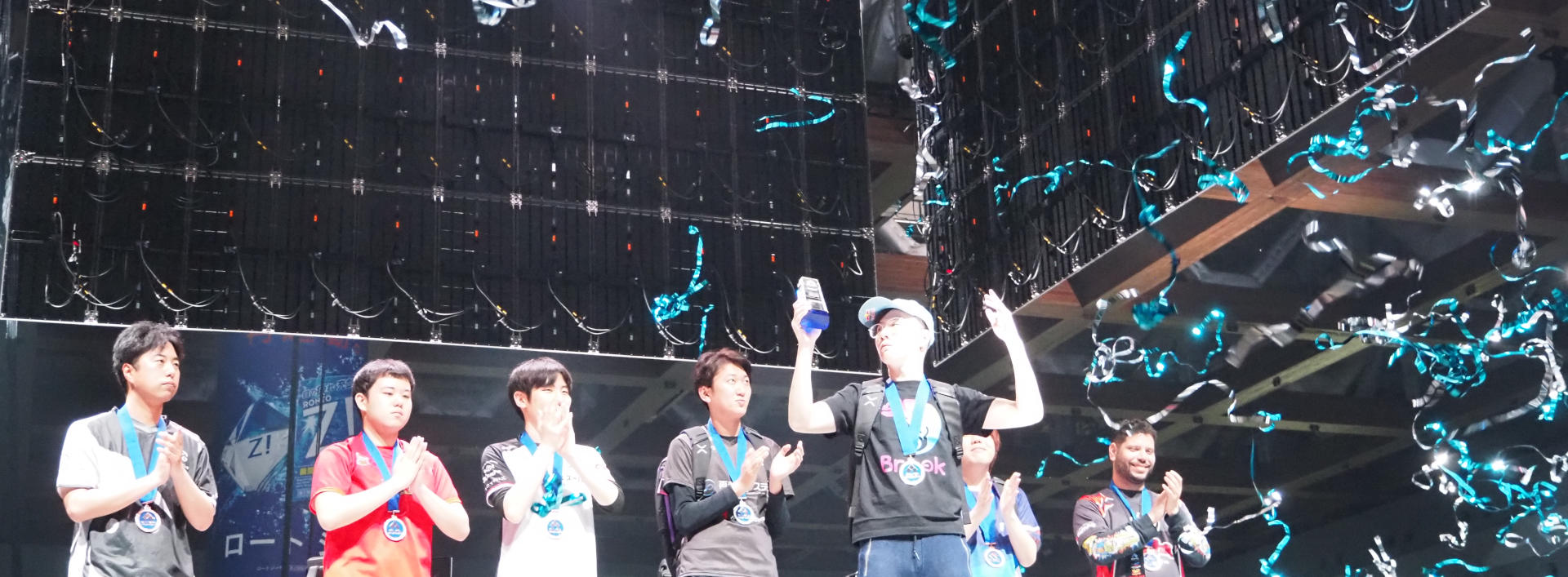Table of Contents
I’m summarizing this Game Watch article because it was the first that I came across that explained things clearly, but JeSU has their own press release with links to the No Action Letter they sent to Ministry of Consumer Affairs and the response they got.
On September 12th (Thursday) the Japan eSports Union (JeSU) had a presentation at TGS about their recent activity. JeSU was founded February 1st, 2018 amid concerns that there may be legal issues around eSports. They count a number of game developers among their rank, and grant eSports Professional Licenses to people. In Japan, those licenses are generally good for letting the holders receive more than 100,000 JPY (a bit less than $1000.)
Since JeSU was founded, they have been working with lawyers and the various Ministries in Japan to try to clarify how Japanese law applies to eSports in a variety of ways. I think this is important work, and it is good that someone is doing it – if JeSU didn’t exist, in Japan tournaments would try things, until maybe someone gets arrested for some sort of tax fraud, or illegal activity of some other type. The burden would shift to individual tournament organizers to try to work out the legality of running tournaments and having prizes, and nobody would be clear on what is allowed until it is litigated. So I do think JeSU, or an organization like them, plays an important role in clarifying how eSports should operate legally within Japan.
I’ll briefly summarize the main points of the article here. I’m not a lawyer, I’m not even a translator (just a Street Fighter fan that has lived in Japan for the past 12 years and can get by) so take anything I say with a grain of salt. I’m also not responsible for actual legal interpretations of Japanese law, do not try to run a tournament based on anything I say here, and seek your own legal representation that is knowledgeable about this area in Japan.
There are three main areas that JeSU has been concerned about from the legal point of view:
- The Free Gift Promotional Regulations. (景品表示法, which is short for 不当景品類及び不当表示防止法, kind of like the law to prevent unfair promotion of products or displays, passed in 1962.) I’ll just call this “Advertising law”.
- Gambling law.
- The entertainment and amusement trade (風俗営業等の規制及び業務の適正化等に関する法律 which, ask me about sometime when we’re drinking.)
1 Advertising Law
The big news is that JeSU wrote a No Action Letter (which is a thing I just learned about) asking about the position of prize money given out at tournaments for people with “Pro Licenses” and those without. One of the reasons JeSU started to issue pro licenses is that they supposed that if playing games is part of one’s job, getting money from that should not be considered to run afoul of the Advertising Law. The response that they received from the ministry is that as long as the tournament meets certain requirements, both Pro License holders and non-Pro License holders can receive prize money. Companies that sell games used for competition are viewed as being under the purview of this law. Based on that, if the game is sold commercially, or if money can be used to make one stronger in the game, prize money over 100,000 JPY (about $925 as I write this) would be illegal. So companies either need to make a free version of the game for competition or make it not pay to win (pay to win is terrible anyway.)
The response from the Ministry was that the winnings from the tournament are to be considered “compensation or rewards for work” and are not subject to the Advertising Law. There is some stuff in there about the tournament needing to meet some requirements and having undergone some evaluation or screening by JeSU or the organization running the tournament, but it doesn’t look to me like JeSU is required to be involved in the process, provided that the game is either free or isn’t pay to win.
There is also a bit in there about the Ministry saying that if the game doesn’t depend on skill to win and various other judgments, just by calling something “eSports” you can’t circumvent the law.
2 Gambling Law
Another big area of concern was around Gambling Law. Especially when you collect entry fees from people, and use that to make a pot given out to the winner, that looks a lot like gambling. The letter apparently said something like taking the money from entrants, pooling it, and giving it out one person is almost the definition of gambling. A lot of people have been unhappy with that, and JeSU has continued to have hearings with the various ministries and is trying to push the point of view that these are games of skill, and not chance, and based on that it is now possible to take an entry fee and use it if some conditions are met.
- If the Prize Money and/or Prize Products are supplied by a 3rd party. Note that this is the only money that can be given out to winners – you can’t increase the prize pot by entrant contributions. The entrance fees can be used to offset costs for the tournament like the venue fee, staff pay, and other costs that are not used as prize money.
- The money from entrants must be kept in a separate account from money from sponsors, or alternatively sponsors must provide the prize money directly as a 3rd party.
That resolves the issues around Gambling Law sufficiently.
3 Entertainment and Amusement Trade
There are questions around this area of law that applies to Game Centers (arcades) and other places (hey, let’s get a beer!) eSports facilities are seen as commercial activities, and as such come under some of the similar laws to Game Centers, and there are details around hours of operation, age restrictions, and so forth. JeSU says that they will continue pursuing clarity in this area as well.
4 What is (Japanese) FGC Twitter mad about?
According to Momochi, the actual prize money that he got for winning TGS is 60,200 yen https://t.co/pUfyajqRHn
— HiFight(ハイファイト) (@HiFightTH) September 16, 2019
@SamuraiFGC this is the first I’ve seen about prize money. Nico7144 says that Momochi could not receive the full prize money and JeSU reduced the 5,000,000 yen to 100,000 yen (the most prize money allowed for non-JeSU license holders). (Cont.) https://t.co/nfKzR39bcs
— FuguTabetai (@DocFugu) September 15, 2019
Here’s an article I translated from two years ago where Momochi shares his thoughts on the Pro License System (the cause of this) and the state of Esports in Japan. Worth a read if you have any interest in the scene.https://t.co/2kzgYGPt1E
— J I Y U N A (@jiyunaJP) September 16, 2019
It’s right there in the rules: https://t.co/X5kFBNN9VH pic.twitter.com/8mQrd4rnQP
— FuguTabetai (@DocFugu) September 16, 2019
Lots of stuff, all the time, just like American FGC Twitter! But in this case, there has been a lot of discussion about how Momochi didn’t get the full prize money for the 2019 Capcom Pro Tour Asia Premiere at the Tokyo Game Show. People are wondering what the point of the license is. Momochi himself refused the take the license, and Jiyuna translated his thoughts on the topic at the time. Generally when people make Top 8, JeSU offers them a license and they are able to accept the full amount of the winnings. The main thing now is that JeSU announced on the 12th that non-JeSU Pro License holders could receive full winnings, but then on the 15th when a non-Pro License holder won the whole thing, he gets about $600 and a monitor.
What surprised me is that the CapCom Pro Tour rules were changed their rules this year such that Japanese players need to have a JeSU license to accept the full prize pot of any tournaments on the CPT. I find that to be pretty crazy – I can understand domestically, but in previous years Japanese domestic law did not apply to tournaments overseas. I think that is kind of crazy.
It is an odd situation, because I think it is important that legally tournaments know how to operate, and tournament organizers have enough to worry about without also having to worry about making sure they are not breaking any laws. They probably have enough trouble with the legal help they need for insurance, contracts, venues, and so forth. It sounds like JeSU has cleared up two of the major hurdles, and basically they are not needed for that any more. Hopefully they do not try to step in as a middle man to regulate who can play fighting games at a high level, or impose additional burden on competitive game players.


Leave a Reply